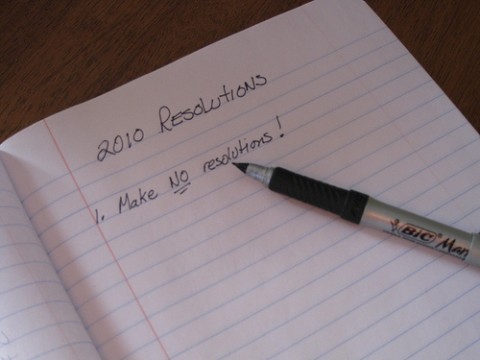Tag Archive: change
June 17, 2010
“When you improve a little each day,
eventually big things happen.”
-The late John Wooden

|Photo by aldoaldoz|http://www.flickr.com/photos/aldoaldoz/2340226779|
Since February I’ve been experiencing back pain in a constant and distracting (though not quite incapacitating) way, a result of having poor posture at the computer, not taking enough breaks while sitting, lifting too many small children, and being another year older. A couple of months ago I went to a chiropractor and he did his best to wrench me back into alignment. This worked for a few days, and then things were back as they were. I enlisted the help of a “deep tissue” masseuse who went after my back muscles with steady steam rolling force. Again, for a few days I was on top of the world, and then it was back to square one. Then, about two weeks ago, I started seeing a physical therapist, who has given me some gentle stretches and postural shifts and done light massage on my left shoulder. Et voila, real progress! Small and subtle shifts have yielded major and lasting results.
Read More
May 25, 2010

My recent post on the limits of policy elicited a very good conversation. One of the things that became evident is that in some settings people are so focused on their personal development and their community life that they pay little attention to the issues of the day. In other settings people are so focused on the fight for justice through policy change that they pay little attention to their own well being or to the hard work of building community. Read More
May 11, 2010

David Brooks is making me think again. This time he is pointing to the limits of policy. Yes, he’s throwing stones at what is a sacred cow for change makers of all stripes – and I’m glad he is doing it. As happens too often with Brooks, he gets dangerously close to cultural determinism, but it is by walking that line that he can manage to highlight some very important empirical patterns. Read More
April 30, 2010
(A repost from April 2009)
I suppose it’s the overlooked companion of Change: Anticipation. It’s the silent provocateur that causes us to peer into the distance, squint past the horizon, turn the proverbial corner, stand on the brink, gear up for the jump off, and on and on. It is the automatic reflex within us that kicks into gear once we have a cognitive or instinctual knowing, that things are about to…shift.
That Change is afoot, we well know: Sam Cooke crooned it; Grandma prayed for it; Obama touted it; analysts predicted it; planners plan for it. My thoughts here turn to unpacking a hunch that what we are missing out on, quite unbeknownst to us, is the wisdom, creativity and knowledge available to ( through?) us/clients in that (anticipatory space of) calm before the storm (of Change). Scharmer’s naming and exploration of pre-sencing gets at it; Gibran’s queries around testing for “readiness” in groups is along the same lines; prototyping as a way into solving complex problems is yet another expression within this same sphere. Rather than an anxious, fear-based, controlling energy wherein we brace for change, I’m suggesting that there is a playful, curious, self- and Other-awareness we can decide to adopt that enables us to learn from Change, and how to navigate it, perhaps even before it occurs.
Read More
April 10, 2010
Friends — I am asking you to help build my capacity to build our capacity to create the change we seek…. from the grassroots to the grasstops, and every village and hamlet in between. Last week, I received an invitation to participate in a meeting in a few weeks on the federal government’s nonprofit capacity building efforts — at the White House! Read More
March 30, 2010
 Why will I be selected to be a part of Seth Godin’s nano-MBA? Because it was made for me! Because the very essence of my job is to produce interactions that organizations care deeply about and because this is how change happens – there is a reason we are called the Interaction Institute for Social Change.
Why will I be selected to be a part of Seth Godin’s nano-MBA? Because it was made for me! Because the very essence of my job is to produce interactions that organizations care deeply about and because this is how change happens – there is a reason we are called the Interaction Institute for Social Change.
I’m doing this because my job is to help organizational leaders understand how to transcend organizational constraints. Because we are experimenting with ways to liberate the passion and the energy that are over-abundant in the social sector. Because the sector’s infrastructure has calcified and has become a constraint – and we are here to unlock it, and to set that energy free. Read More
February 24, 2010

|Photo by Philip Bouchard|http://www.flickr.com/photos/pbouchard/2826560107/sizes/m/|
I just had the great fortune of spending seven days in Dakar, Senegal (and traveling back and forth to it). An amazing trip – and the two twenty hour travel days gave me time to really dig into the book “Connected: The Surprising Power of Our Social Networks and How They Shape Our Lives” by Nicholas A. Christakis and James H. Fowler.? I read it within the context of doing work in Senegal on a project that’s global in scope – and also thinking back to many of the other initiatives I’ve worked on.
Read More
January 7, 2010

|Photo by katerha|http://www.flickr.com/photos/katerha/4233144961/|
Legion are not just the excuses but the explanations behind the excuses for not living up to our annual New Year’s resolutions. I know these excuses and theorizing about the real reasons for my failings quite well. And yet this year I remain hopeful that I will have more success in honoring my commitments, thanks in part to the work of Robert Kegan and Lisa Lahey. In their book Immunity to Change, the authors lay out a handy set of questions that I believe shed valuable insight on how individuals and groups might hold themselves more accountable to genuine and realistic change aspirations.
In analyzing the pattern of a failed change effort, Kegan and Lahey suggest that we answer the following:
Read More
December 23, 2009
Greetings and best wishes for the rest of this holiday season.? In the Northern Hemisphere, we’re now turning toward longer days and celebrating the return of the sun. Boston, like most of the eastern US, was blanketed in snow this past weekend.? And IISC will be on break the rest of this week and all of next week, holding to its commitment of balance, well-being and sustainability.
I’ve been reflecting quite a bit on all the things I’ve learned over the past year, the ways IISC has grown and shifted, and feel honored to be part of such a dynamic organization and group of people.
Read More
December 15, 2009
Part 3 of Three Lenses for Collaboration
The second lens through which the Interaction Institute for Social Change looks at collaboration is the lens of networks. I think about this as one of the most important interventions on the sector, the shift from an organization centric paradigm to a network paradigm. The good news is that this shift is already happening; the even better news is that this shift calls for stronger and deeper forms of collaboration.
In the recent Convergence report, LaPiana consulting identifies the fact that “networks enable work to be organized in new ways” as one of five converging trends that will redefine the social sector. It is important to understand that while there is a close relationship between new social technology and our capacity to work in networks, the shift to a network paradigm is not just a technological shift – it is a different way of organizing how we work together, a different paradigm for collaboration.
Read More
September 8, 2009
Last weekend I was honored to facilitate “Creative Change 2009“, a retreat convening for the Opportunity Agenda in Telluride Colorado. I was awe struck by the beauty of the Rockies as well as by the way retreat participants demonstrated a willingness to grapple with questions at the intersection of arts, media and social change. The Opportunity Agenda team did a phenomenal job of bringing the right people into the space while also planning an agenda that lent itself to generative thought, rejuvenation and relationship building.
I was particularly appreciative of the resistance and reaction to any wording that forced a separation between artist and activist. Now let me be clear, some of the conversations that we had would not have made as much progress if we had made no effort to sift through the differences – while most artists present also considered themselves activists, not every activist is ready to consider herself an artist. However, even when the distinction was practical, many participants reacted negatively to having to make that choice. It is my opinion that this bodes well for movement. Read More
August 4, 2009
I was blown away by one of Adrienne Maree Brown’s blog posts last week. In writing “consider it…” she manages to lift a veil and give us a glimpse into a way of being that is significantly more free. I was blown away in so many ways, but I was particularly moved by the very fact that such words were coming from within our movement. There is now a corner of movement work where you can find razor sharp analysis powerfully combined with an understanding of Self that is nothing short of illuminated, it is no longer an either/or, and this is good news for all of us.
As I spend more of my time calling out this zeitgeist, I am breathing myself into that part of the work where hope is vibrant, potentiality brews and generative forces insist on creating something new. This is the part of paradigm shift that takes the idea of networks to another level by forcing us to contend with the unplannable and to devote more of our time to creating the conditions for emergence. This is the part of paradigm shift that makes the highest demand of us as people – and how we think about this “us.”
Read More



 Why will I be selected to be a part of Seth Godin’s
Why will I be selected to be a part of Seth Godin’s 
